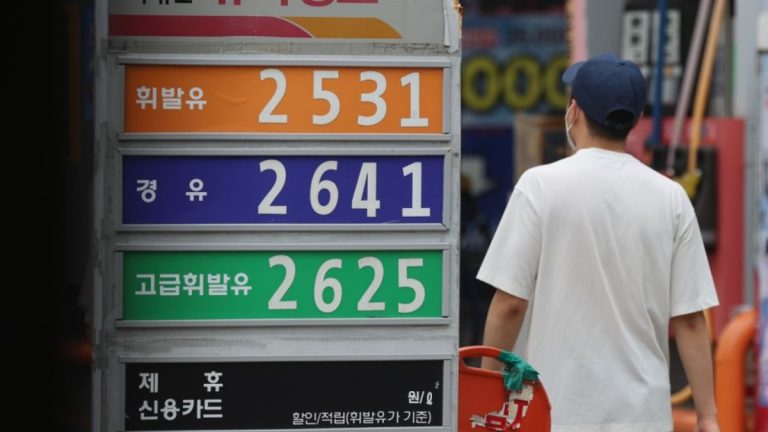🎧 Listen to This Article
A Policy Balancing Act in a Volatile Energy World
On October 23, South Korea’s Ministry of Economy and Finance announced a two-month extension of its fuel tax relief, albeit with scaled-back reductions. The move—triggered by rising energy costs linked to instability in the Middle East—reflects an increasingly common policy dilemma for energy-dependent economies: how to protect consumers from inflation without compromising fiscal discipline.
From November 1 through December 31, the fuel tax cuts will be trimmed:
Gasoline: reduced from a 20% cut to 15%
Diesel & LPG: cut from 30% to 23%
While the continuation offers short-term relief, the reduction in the discount rate is telling—it signals Seoul’s effort to reconcile inflation control with mounting fiscal costs.
The Bigger Picture: Inflation Management Meets Tax Integrity
Since 2021, Korea has used tax policy as a shock absorber—adjusting fuel taxes based on the energy market’s volatility. This is not just reactive policymaking; it’s an emerging paradigm in tax design: flexibility as a tool for macroeconomic stabilization.
But that flexibility comes with cost.
Fiscal Impact:
Fuel tax cuts reduce government revenues in a country already under demographic and economic strain. With an aging population, high welfare obligations, and low birth rates, every percentage point of lost excise revenue is significant.
Inflation Dilemma:
Korea’s CPI remains vulnerable to imported inflation—driven largely by energy prices. Policymakers are effectively “buying time” with tax cuts, but that time comes at the cost of long-term revenue erosion.
Expert Insight:
This is a classic case of a temporary tax relief policy morphing into structural dependency. If Korea continues to extend and re-extend such measures, it will eventually need to rebalance elsewhere—possibly through income, VAT, or corporate tax hikes in future budgets.
Global Implications: A Policy Tool Spreading Across Borders
South Korea isn’t alone. Fuel tax cuts have become a go-to political strategy worldwide:
Germany launched temporary excise suspensions in 2022
India routinely adjusts central excise duties on petroleum
France offered direct subsidies and excise relief during the 2022 oil crisis
This policy diffusion points to a new global norm: energy taxation is no longer stable. Instead, it’s now a real-time lever that governments use to manage:
Inflation expectations
Political risk
Public confidence
For multinational businesses and tax strategists, this unpredictability must now be factored into operating cost models, especially in logistics, aviation, and transport-heavy sectors.
Long-Term Implications: Korea’s Fiscal “Slack” Is Shrinking
While a two-month extension seems minor, the underlying message is clear: Korea is running out of fiscal slack. The gradual tapering of tax relief is a sign that policymakers are:
Preparing the public for higher prices in 2025
Trying to re-anchor fiscal expectations ahead of a likely global downturn
Testing new policy communication strategies in a fragile geopolitical landscape
Expect further developments as:
The Middle East conflict evolves
Oil prices stay volatile
Korea’s 2025 budget approaches finalization
Recommendations for Stakeholders
For Corporates in Korea:
Adjust Q4 and Q1 fuel-related expense forecasts; factor in reduced relief.
Consider hedging strategies where feasible for fuel-intensive sectors.
For Policymakers:
Start designing exit strategies for tax-based inflation control.
Explore targeted subsidies or rebates instead of blanket excise adjustments.
For Global Investors:
Watch for tax-based inflation control as a leading indicator of underlying fiscal strain—particularly in countries with energy import dependence.
South Korea’s updated fuel tax policy is more than a reaction to global oil prices—it’s a sign of an evolving economic doctrine where taxes serve as flexible crisis management instruments. The world watches how Seoul navigates this tightrope between inflation control and fiscal integrity. And the lessons won’t stay local.
For further details, clarification, contributions, or any concerns regarding this article, please contact us at editorial@tax.news. We value your feedback and are committed to providing accurate and timely information. Please note that our privacy policy will handle all inquiries



